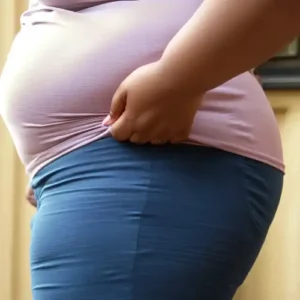The rules for having another baby aren’t set in stone. You have to look at the pros and cons for big and small age gaps. What works for your family might not be a good option for another family.
And even if you planned it perfectly, your next baby could come at a time that is totally unexpected. However, with what you have learned from earlier children, any age gap is workable.
When’s the best time to have another baby?
This will vary for each family. A newborn is very time-consuming. Will you and your partner have the time and energy that a newborn will require? Are your other kids prepared to have a new baby at home?
Mothers usually think that it is better of the other children are older. They already had lots of time with you before the appearance of the new baby. The other kids are usually old enough to understand and discuss the impact of a new baby.
Small age gaps are better for other families as it guarantees that the siblings have playmates for a lifetime. When you have your children at closer time intervals, you won’t have to worry about raising babies and toddlers as you get older.
Although only you can make the final decision as to when you are ready, it might be helpful to see what the research shows:
- As per a number of studies, a waiting period of 18 to 23 months following the birth of your previous child appears to be most beneficial for the health of the new baby.
- If the gap is under 17 months, there is an increased risk that the new baby might be underweight or premature. These risks are most prevalent for babies conceived in less than 6 months of the birth of the previous child.
- Babies that are conceived over 5 years following the previous child also have an increased risk of being underweight or premature.
Although taking your other children into consideration and the impact a new baby will have on them, you also need to consider your own health. Giving birth is stressful on your body and you need time to recover and replace all the nutrients you lost because of your previous pregnancy. You should therefore seriously consider taking a much-deserved break before going for another baby.
Irrespective of the decision, you come to as a couple, be sure your energy level is back to 100%, eat a healthy diet and get yourself ready physically and mentally for a new baby.
Will another child have a negative impact on us financially?
Although money isn’t the most important thing, you will need some kind of stable financial situation when raising a family. It isn’t a surprise that each child costs thousands of pounds to raise yearly. When you are getting pregnant again, you will have to account for a bit more money in your budget.
What is your work situation? You have to consider those too. New mothers find it difficult to balance a new baby full-time or even part-time work when baby number two or three appears. How would you feel about work after the new baby? Can you afford to stay at home?
If you are going back to work, how much will it cost for the extra childcare? Day care or a babysitter could be expensive if you have multiple children. Depending on your childcare needs and where you live, hiring a nanny might be another alternative.
Besides the immediate expenses that come with a new addition to the family, you also have to think about long-term costs. Education is one of the biggest expenses that parents face, and if you plan on sending your children to private schools or universities, you have to start saving as soon as possible.
Expanding your family may also mean that you need a bigger house or a larger car. These are significant investments that require careful financial planning.
It’s important to have an honest conversation about your financial situation and weigh the costs and benefits of having another child. You may have to make some sacrifices and adjustments to your lifestyle, but with proper planning and budgeting, having another child can be a wonderful experience for your family.
Will my age impact when I should get pregnant again?
Perhaps. Say you are currently 38 years old and would like to have two more children, you probably are not in the position to space them 3 years apart. However, if you are under 30 and don’t have any health issues that could impact conception, you probably have more flexibility.
Even so, there isn’t a hard cut off age for getting pregnant. After 35 years of age, fertility rates plummet, however, many women are still able to conceive into their early 40s. (If you are worried that time is running against you, using ovulation tests can help you to quickly identify your fertile time so that you can try and get pregnant as quickly as possible.)
What if my partner and I are not on the same page when it comes to trying again?
In a perfect situation, you and your partner will be on the same page as to when to get pregnant again. But, it might be possible that one partner is ready and the other isn’t. Although this might be difficult to work out, you have to begin by discussing your differences.
Be sure to discuss your different points of view. Perhaps your partner feels you are now both getting to a point where you spending more time together again. Maybe you want to experience the precious baby sounds again now that your first child is getting older.
There might not be an instant solution; however, each partner will now understand the hope and fears of each other. Discussing it with other people might be helpful too. Hopefully, there is a solution that is beneficial to the whole family.
You might be stuck going over the pros and cons and not coming to a mutual conclusion. This decision is best arrived at by the heart. When you and your partner are on the same page, now is a good time as any.
Photo by Anthony Cunningham for Zoom Baby
This post first appeared in December 2018 and has been updated since
Zoom Baby is a leading supplier of Pregnancy Tests and Ovulation Test Kits





